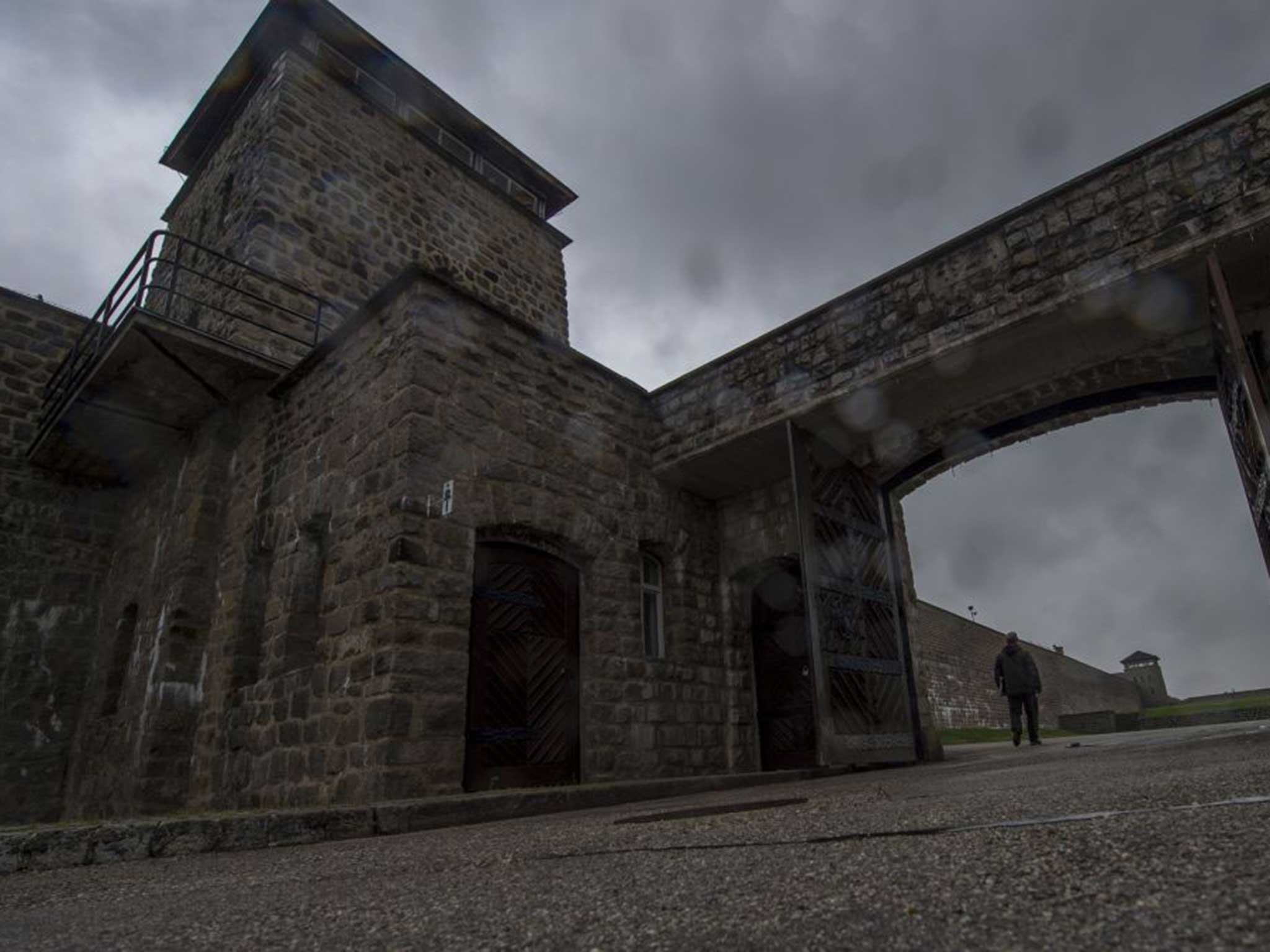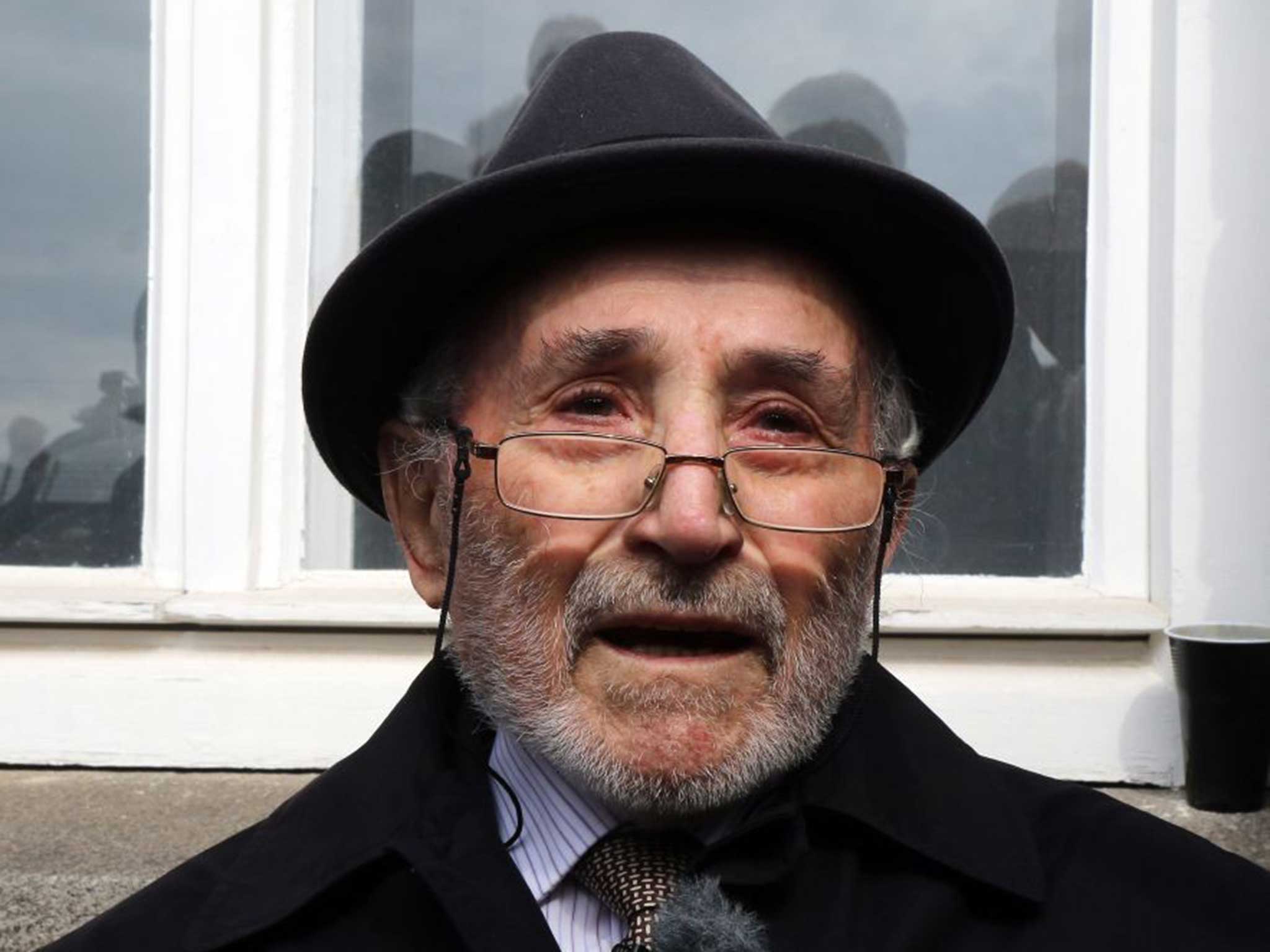Nazi concentration guards offered starving prisoners respite - only to execute them if they accepted
Recollection of Mauthausen camp survivor comes following 70th anniversary of the site's liberation

Your support helps us to tell the story
From reproductive rights to climate change to Big Tech, The Independent is on the ground when the story is developing. Whether it's investigating the financials of Elon Musk's pro-Trump PAC or producing our latest documentary, 'The A Word', which shines a light on the American women fighting for reproductive rights, we know how important it is to parse out the facts from the messaging.
At such a critical moment in US history, we need reporters on the ground. Your donation allows us to keep sending journalists to speak to both sides of the story.
The Independent is trusted by Americans across the entire political spectrum. And unlike many other quality news outlets, we choose not to lock Americans out of our reporting and analysis with paywalls. We believe quality journalism should be available to everyone, paid for by those who can afford it.
Your support makes all the difference.At the 70th anniversary of the liberation of a notorious Nazi concentration camp survivors spoke of the brutality they experienced at the hands of guards.
Mauthausen concentration camp received its first prisoner in 1939 growing to be the largest camp established by the Nazi regime in Austria. By the time it was liberated by US forces in 1945 more than 100,000 people had died in the main and satellite camps.
Almost 50 survivors travelled to Austria to mark the camp’s liberation on Sunday, among them Aba Lewitt.
Mr Lewitt, now 92, described seeing guards ask emaciated inmates whether they wanted to rest having struggled up 186 steps of the “Stairway of Death” – dragging huge blocks of granite the entire way – and most said yes, grateful for the least respite.

"The guard said, 'Well, then, sit over there'— then he shot him," Mr Lewitt said with tears welling in his eyes. "He said the inmate tried to escape the camp. That happened umpteen times every day."
The main camp had been designated a “Category III”, meaning its inmates – a mixture of Jews, political prisoners, conscientious objectors and other opponents of the Nazi’s – were slated for death.
Thousands built war planes or military equipment within tunnels tortuously dug from the mountainside – but a worse fate awaited those assigned to the granite pit below.
Many prisoners were forced to work 12-hour days hauling giant blocks of granite up a precipitously uneven causeway, morbidly referred to as the “Stairway of Death”.
In the memorial service on Sunday, attended by approximately 20,000 people, Austria’s Chancellor Werner Faymann urged his countrymen "to never forget and to elevate values such as tolerance, democracy, non-violence and solidarity."
Additional reporting by Associated Press
Join our commenting forum
Join thought-provoking conversations, follow other Independent readers and see their replies
Comments